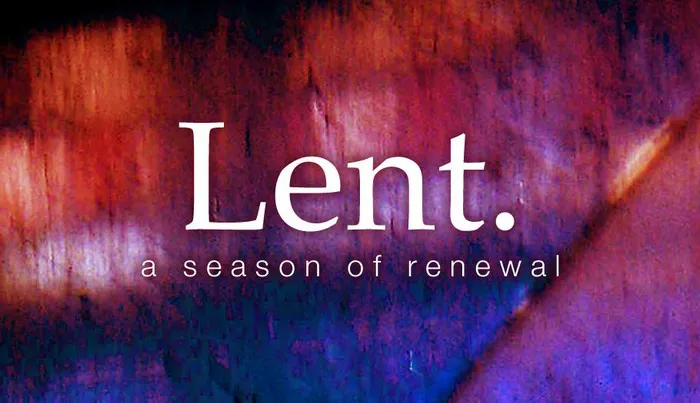Lent, a solemn and reflective period observed by millions of Catholics around the world, marks a significant juncture in the liturgical calendar. This forty-day season of spiritual preparation and penance holds profound significance within the Catholic faith. From its origins to its contemporary observance, Lent encompasses a rich tapestry of traditions and practices that foster introspection, repentance, and renewal.
What is Lent?
Lent, derived from the Anglo-Saxon word “lencten,” meaning springtime, is a season of reflection and penance leading up to Easter. Rooted in the early traditions of the Christian Church, Lent finds its origins in the practices of fasting and preparation observed by early Christians in anticipation of Easter, the celebration of the resurrection of Jesus Christ.
In the Catholic liturgical calendar, Lent spans forty days, mirroring the forty days Jesus spent fasting in the wilderness, as recounted in the Gospels of Matthew, Mark, and Luke. This period excludes Sundays, as Sundays are considered “mini-Easters,” commemorating the resurrection and therefore not days of fasting or penance.
When is Lent?
Lent commences on Ash Wednesday, which falls forty-six days before Easter Sunday, including Sundays. This solemn day marks the beginning of the Lenten season and is characterized by the imposition of ashes on the foreheads of the faithful, symbolizing repentance and mortality.
The forty-day duration of Lent holds symbolic significance, echoing various biblical events such as the forty days and nights of rain during the flood in Genesis, Moses’ forty days and nights on Mount Sinai, and Elijah’s forty-day journey to Mount Horeb. Moreover, forty is a recurring motif signifying purification, testing, and preparation throughout the Bible.
Why do Catholics Observe Lent?
Catholics observe Lent as a time of spiritual renewal, repentance, and preparation for the celebration of Easter, the pinnacle of the liturgical year. It offers an opportunity for believers to reflect on their lives, deepen their relationship with God, and engage in acts of self-denial and charity.
The primary objectives of Lent include:
1. Spiritual Preparation: Lent provides Catholics with a dedicated period to prepare their hearts and minds to commemorate the passion, death, and resurrection of Jesus Christ. Through prayer, fasting, and almsgiving, believers seek to purify their souls and draw closer to God.
2. Reflection and Repentance: Lent invites Catholics to engage in introspection, examining their lives in light of Christian values and principles. It prompts individuals to acknowledge their shortcomings, seek forgiveness for their sins, and strive for spiritual growth and transformation.
Practices and Traditions of Lent
Throughout Lent, Catholics engage in various practices and traditions that emphasize self-discipline, sacrifice, and acts of mercy. These include:
1. Fasting and Abstinence: Fasting involves limiting the intake of food, particularly on Ash Wednesday and Good Friday, while abstinence entails refraining from consuming meat on Fridays during Lent. These practices symbolize solidarity with the poor, self-discipline, and spiritual purification.
2. Almsgiving and Charity: Lent encourages Catholics to engage in acts of charity and compassion towards those in need. Through almsgiving, believers express solidarity with the marginalized and demonstrate Christ’s love through acts of kindness, generosity, and service.
3. Prayer and Reflection: Lent fosters a spirit of prayerfulness and contemplation, inviting Catholics to deepen their prayer life and cultivate a closer relationship with God. Through regular participation in liturgical services, personal prayer, and spiritual reading, believers seek spiritual nourishment and renewal.
Ash Wednesday and its Significance
Ash Wednesday, the solemn beginning of Lent, holds profound significance for Catholics worldwide. On this day, the faithful gather to receive ashes on their foreheads, a tangible reminder of human mortality and the need for repentance. The ashes, typically derived from the burned palm branches blessed on the previous year’s Palm Sunday, symbolize penance, humility, and reconciliation with God.
The imposition of ashes is accompanied by the solemn words, “Remember that you are dust, and to dust, you shall return” or “Repent and believe in the Gospel,” serving as a poignant call to repentance and conversion. Ash Wednesday sets the tone for the Lenten journey, urging believers to embark on a season of spiritual renewal and transformation.
Holy Week and its Connection to Lent
Holy Week, the final week of Lent, holds paramount importance in the Catholic faith as it commemorates the events leading up to Jesus’ crucifixion and resurrection. This sacred week begins with Palm Sunday, which marks Jesus’ triumphant entry into Jerusalem, and culminates in the Easter Triduum, comprising Holy Thursday, Good Friday, and Holy Saturday.
Holy Week serves as the climax of the Lenten season, inviting Catholics to accompany Jesus on his journey to the cross and participate in the paschal mystery of his death and resurrection. Through liturgical celebrations, such as the Mass of the Lord’s Supper, the veneration of the cross, and the Easter Vigil, believers enter into the profound mystery of salvation and the triumph of life over death.
Conclusion
In conclusion, the Catholic Lenten season offers believers a sacred opportunity for spiritual renewal, reflection, and transformation. From its ancient origins to its contemporary observance, Lent remains a period of profound significance within the Catholic faith, inviting believers to journey with Christ towards the joy of Easter resurrection. Through prayer, fasting, and acts of charity, Catholics embrace the call to repentance and embrace the transformative power of God’s grace in their lives.

